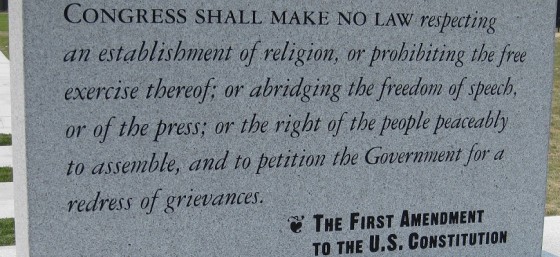The Ninth Circuit Court of Appeals recently ruled that Crystal Cox will get a new trial for the defamation lawsuit that was filed against her. Cox calls herself an “investigative blogger” and she wrote a blog post where she accused Oregon bankruptcy attorney Kevin Padrick and his company, Obsidian Finance Group LLC of committing “fraud, corruption, money-laundering and other illegal activities.” Padrick sued Cox for defamation and an Oregon court awarded him $2.5 million in damages.
In general, defamation requires a false statement about a person communicated to a third party that hurts that person’s reputation. Based on this definition, it’s easy to see how a blogger could be accused of defamation if someone suspects the blogger is lying about them in a post. The court applies different standards for different situations involving situations which will affect whether the author has committed defamation and what damages can be awarded.
A court may award compensatory damages to make up for the person’s damaged reputation and punitive damages to punish the person who committed the defamation.
Here are the three standards that can apply in a defamation case.
- Defamation of a public person: The alleged victim must prove that the author knew or should have known they were lying when they made the statement in question – only compensatory damages available.
- Defamation of a private person regarding a manner of public concern: Punitive damages are available in addition to compensatory damages if the alleged victim can prove that the author was negligent in making the statement.
- Defamation of a private person regarding a matter that is not of public concern: Compensatory and punitive damages are available if the alleged victim can show that the statement was false and damaged their reputation.
It appears the lower court applied the standard for defamation of a private person regarding a matter that is not of public concern and the court of appeals ruled that they should have used the standard for defamation of a private person regarding a manner of public concern because the public has an interest regarding whether an attorney is corrupt and committing fraud. So the parties will have to settle the case between themselves or have a new trial and use the correct standard. But note, there is no dispute about whether the statement in question was defamatory, only what standard the court is supposed to use to decide the case.
Some people are calling this ruling a huge victory for bloggers because it states that the same defamation standards for journalists apply to blogging – and I’m going to respectfully disagree. The landmark defamation cases may have started with journalists, but we don’t have different defamation laws for journalists and everyone else. (If this were a Shield Law case, it would be different.) There have been other defamation cases against non-journalists where the court applied the same standards. The fact that this might be the first time a court has said that bloggers can write about matters of public concern is an indicator of how few defamation cases go to trial more than anything else. No real new information has come out of this ruling by the Ninth Circuit.
This case is a good reminder about where you can be sued because of your blog. If you do something wrong via your blog and you get sued, the alleged victim is going to sue you in their state and under their state’s laws. In this case, Cox was living in Montana when she made the original statements and she had to travel to Oregon to defend herself under Oregon’s laws.
If you want more information about internet defamation, please check out my book, The Legal Side of Blogging: How Not to get Sued, Fired, Arrested, or Killed. It has an entire chapter dedicated to online defamation. You can connected with me on Twitter, Facebook, YouTube, LinkedIn, or you can email me. You can also subscribe to the Carter Law Firm newsletter.
Please visit my homepage for more information about Carter Law Firm.

